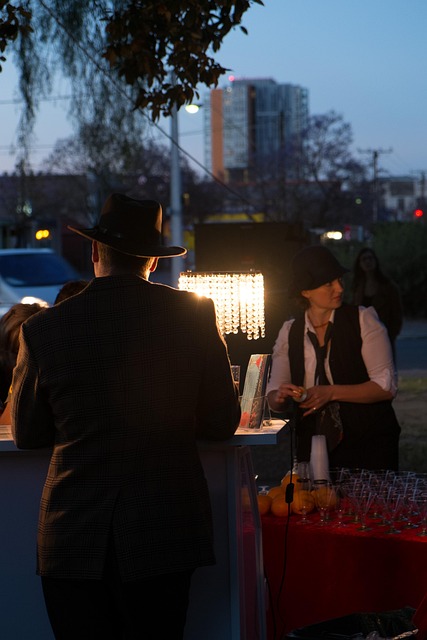In 1920s Lane County, Oregon, despite Prohibition, residents defied laws through bootlegging, creating an underground economy with secret distilleries and speakeasies, fostering community connections and resilience during a period of social change.
In the early 20th century, Lane County, Oregon, found itself embroiled in the nationwide debate over prohibition. Despite federal mandates, this vibrant community forged its path, leading to a unique and resilient underground scene. Discover how Lane County’s residents navigated the challenges of bootlegging, fostering a strong sense of community support amidst the legal obstacles. Explore the fascinating story of their adaptability, revealing the extraordinary measures taken to access spirited offerings in the face of prohibition.
- Life on the Underground: Lane County's Bootlegging Scene
- Community Support in the Face of Prohibition
- Resilience and Adaptation: Overcoming Legal Obstacles
Life on the Underground: Lane County's Bootlegging Scene

In the heart of Oregon, Lane County experienced a unique and resilient chapter during the Prohibition era. While national laws banned the production and sale of alcohol, the county’s vibrant community found ingenious ways to thrive. Underground, a clandestine network of bootleggers emerged, their operations a testament to human ingenuity and determination. These secretive entrepreneurs ventured into the dense forests and remote areas, distilling spirits in hidden stills and transporting them through clandestine routes, evading federal agents.
Lane County’s bootlegging scene was not just about avoiding the law; it became a community phenomenon. Local businesses, from cozy speakeasies to underground clubs, flourished, offering residents a glimpse of normalcy amidst the restrictions. The county’s resilience shone through as people found ways to socialize, celebrate, and enjoy life without official sanction. This clandestine world was a fascinating yet dangerous realm, where cunning and secrecy became tools for survival and community bonding during one of America’s most restrictive periods.
Community Support in the Face of Prohibition

In the face of Prohibition, which banned the sale and transportation of alcoholic beverages from 1920 to 1933, the people of Lane County, Oregon, demonstrated remarkable resilience and community support. Despite the illegal nature of bootlegging, many residents took it upon themselves to ensure access to alcohol, often through a collaborative effort that involved local distillers, merchants, and consumers. This underground economy thrived, with secret distilleries popping up in rural areas and clandestine deliveries taking place under the cover of night.
The tight-knit community spirit played a crucial role in overcoming the challenges posed by Prohibition. Neighbors helped neighbors, sharing resources and knowledge to sustain this illegal but vital trade. Secret meeting places were established, where individuals could gather to exchange information about the latest bootlegging operations, safe storage locations, and even homemade recipes for alcoholic beverages. This communal resilience not only sustained a popular pastime but also fostered a sense of unity and shared purpose among Lane County residents during a period of significant social upheaval.
Resilience and Adaptation: Overcoming Legal Obstacles

In the face of strict prohibition laws in Lane County, Oregon, during the early 20th century, the community’s resilience and adaptability became a fascinating story of survival. Despite the illegal nature of the practice, bootlegging became an insidious yet necessary enterprise for many residents. They navigated the challenges posed by state regulations and law enforcement efforts, finding creative ways to supply the demand for alcohol. This period witnessed a unique blend of entrepreneurship and community spirit as individuals took on the task of bringing prohibited spirits to those eager to quench their thirst.
The county’s resilience was not just about overcoming legal obstacles but also forging new economic opportunities. Bootleggers, often operating under the radar, contributed to an underground economy that provided much-needed jobs and income for many families. This clandestine trade became a symbol of community strength and resourcefulness, showcasing the determined spirit of Lane County residents during a time of strict prohibitionist policies.
